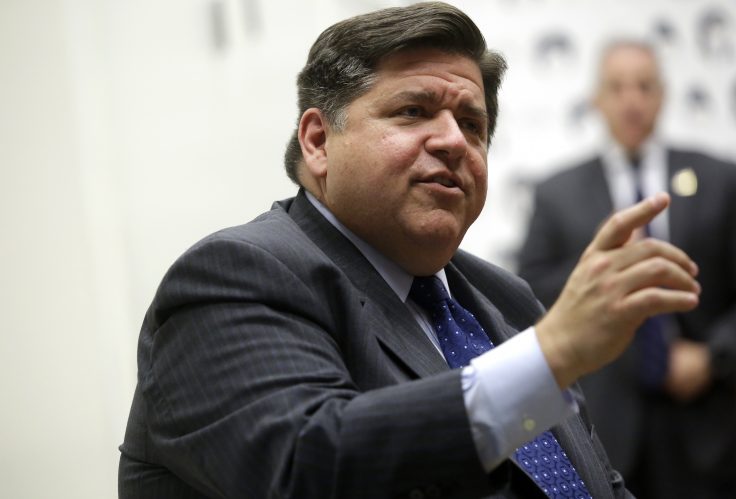Illinois Democrats passed a state budget over the weekend that relies on billions in still-not-guaranteed federal dollars to avoid a gaping deficit.
The state's 2021 budget, now headed to Gov. J. B. Pritzker's (D.) desk, is written with the expectation that the $3.5 billion the state received under the CARES Act will be freed up for general spending. That would require Congress to change limitations on those funds, which currently can only be spent on expenses directly related to coronavirus—not general fiscal costs.
The bill also gives Pritzker the authority to borrow up to $5 billion from the Federal Reserve as part of a program backstopped by Congress.
Pritzker's political gambit is likely to add further fuel to the heated debate in Congress over a state and local bailout. Illinois, with its chronically underfunded pensions, has already been at the center of that debate, with Republicans arguing that federal dollars should not go toward bailing out state governments that failed to save for a rainy day. The State Democrats' move will give ammo to both Republicans, who oppose an unconditional bailout, and federal Democrats, who have insisted that states need more money with no strings attached.
Pritzker acknowledged Sunday morning that without an end to the congressional standoff over a federal bailout for state and local governments, the budget will not balance, telling reporters, "We're relying on them to do the right thing for Republican-led states and Democratic states."
Republican state senator Jason Plummer told the Washington Free Beacon that he has "no doubt" that many state Democrats anticipate the CARES Act funds will be freed up, with Democratic lawmakers going so far as writing a budget that does not waive the legislators' annual pay increases even as the state faces a fiscal crisis.
The state's $40-billion budget passed both houses of the legislature on a party-line vote, driven in part by Republicans' concerns over the potential funding hole. A Republican analysis of a slightly earlier version of the bill, obtained by the Free Beacon, projected a massive budget deficit that could only be closed with additional federal funds or the voters' approval of Pritzker's proposed increase in the top-bracket income tax rate.
The uncertainty around whether either of those funding sources will come through leaves the government potentially facing a substantial shortfall.
"We passed an unbalanced budget that depends on borrowing and funding from the federal government, and in order for that budget to be balanced as structured, some of the federal money would have to be used for non-pandemic related expenditures, which is entirely inappropriate," Plummer said.
Plummer also slammed his Democratic colleagues for taking their automatic $1,800 annual pay raise, noting that they have been "MIA for the last eight weeks." That change is particularly likely to be perceived as a blow to Illinois workers, 13 percent of whom have lost their jobs since February.
Illinois has been at the center of the ongoing dispute in Congress over whether state and local governments should receive general-purpose funds, not specifically earmarked for coronavirus-related issues, as a bailout in the next stimulus package. House Democrats offered $500 billion in their abortive attempt at a bill introduced earlier this month. Congressional Republicans, however, have balked at the idea, seeing states' fiscal woes—particularly insolvent pension funds like Illinois's—as largely of their own making.
"Liberals in Illinois wrecked the state's finances long before the China Virus—now they pass budgets that raise their own pay while anticipating billions in taxpayer bailouts," Sen. Tom Cotton (R., Ark.) wrote on Twitter, representing the general consensus of his caucus.
That means the Illinois Democrats' budget gambit is likely to only harden battle lines as Congress weighs another stimulus bill—leaving their state's economic stability hanging yet again by a thread.
"I have no doubt that there's a lot of state Democrats that anticipate being able to use federal tax dollars for non-pandemic related expenses," Plummer said, "and that's something that we can't allow because it sets a terrible precedent, and it's a slap in the face to the states that have done things the right way for so many years."
